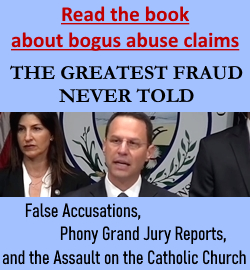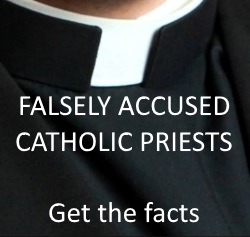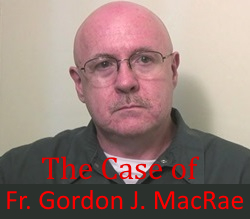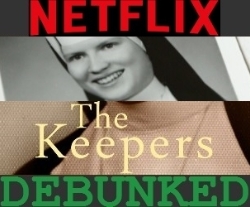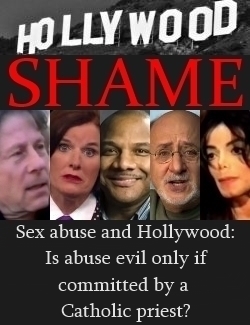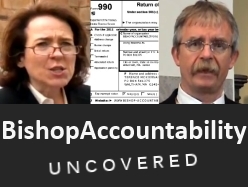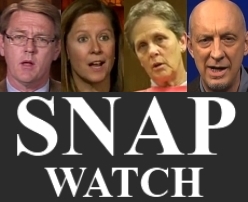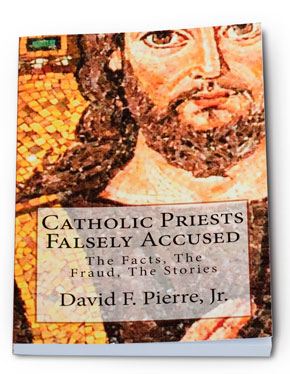Late last week, media outlets seized on a Commonweal magazine article (5/12/11) written by Ana Maria Catanzaro, the chair of the Archdiocese of Philadelphia Review Board. The media characterized Catanzaro's article as a direct rebuke of Philadelphia Cardinal Justin Rigali and local bishops for their handling of abuse cases. Here were some of the media's headlines:
- "Philly diocese's sex-abuse chair blasts cardinal" (Associated Press, 5/14/11)
- "Priest-abuse panel's chairman faults Rigali for secrecy" (Philly.com, 5/14/11)
- "Abuse panel chair blasts Phila. bishops" (Boston Globe, 5/14/11)
The message from the media was clear: Catanzaro "slammed" Cardinal Rigali and the local bishops.
However, in a recent live television interview on Philadelphia's Fox 29 (Sun., 5/15/11), Catanzaro says something entirely different. She asserts that her article "was not at all intended to attack or to rip or to bash the Cardinal and the bishops in any way."
In other words, Catanzaro indicates that her article has been seriously misrepresented.
In the interview, the Fox 29 host (Joyce Evans) introduced Catanzaro by noting that her "scathing" article "pulls no punches," "slams" the Cardinal, and "comes down hard on the Cardinal." Catanzaro later responded to a question from the host:
HOST: … Are you accusing the Cardinal and other Church leaders of withholding important information, covering up bad behavior, and/or just outright lying?
CATANZARO: Well, it's interesting that you say that, because the article that I wrote for Commonweal was not at all intended to attack or to rip or to bash the Cardinal and the bishops in any way.
HOST (defensively, interrupting): It certainly reads that way.
CATANZARO: I was surprised, quite honestly, because I worked very hard to make sure that that came out as an objective account of what happened. I had been getting calls since the grand jury report from across the country as to, "What happened? What went wrong?" And that's what I was trying to answer, to give an account of how these cases were investigated by us, what the process was that we used, and to really try to point out some of the flaws in the system, give some constructive criticism for sure, and to provide some recommendations, so that we could be as transparent as possible.
A couple quick points:
1. The media has almost universally failed to report a serious gripe from Catanzaro and others regarding the Philadelphia grand jury: The grand jury never asked anyone on the review board to testify about how they decided to return accused clerics back into ministry. The jury then trumpeted that "37 credibly accused" priests in Philadelphia were still in active ministry. As it turns out, many of those thirty seven may not have involved crimes with minors at all. In the television interview, Catanzaro noted, "We went back and really looked at everything we had done, and we couldn't figure out where these 37 people were coming from."
Such an utter disregard for the review board by the grand jury may lead many to believe that the jury engaged a biased mission with the predetermined outcome of recommending criminal charges against Catholic clerics, no matter what the facts. (TheMediaReport.com has detailed what appears to be a mean-spirited, misleading, and unfair report: "Unfair in Philadelphia? A Closer Look at the Grand Jury Report" (March 2011).)
2. The media happily seized on a particular line from Catanzaro's article: "Cardinal Rigali and his auxiliary bishops also failed miserably at being open and transparent." Yes, it is a harsh statement. However, a simple reading of the article reveals that her line is not a reference to the clerics' handling of abuse cases, as media have led the public to believe. Rather, her statement refers to their public response immediately following the release of the February grand jury report. (Unfortunately, Catanzaro does not articulate exactly what she believes Cardinal Rigali should have said. In his defense, Cardinal Rigali, like Catanzaro herself, simply may not have known all of the cases to which the jury referred and "where these 37 people were coming from." If Catanzaro herself didn't know "where these 37 were coming from," what makes her believe that Cardinal Rigali did? It's a fair question. The grand jury was hardly "open and transparent" itself.)
Indeed, Catanzaro blames what she sees as "a culture of clericalism" for the problems in Philadelphia. This, most definitely, can be understood as a pretty harsh criticism of Cardinal Rigali and the bishops. (Yet again, Catanzaro is far from helpful with her rebuke, as she fails to offer what her specific corrections would be.)
Is Catanzaro backtracking from her article? Or is she honestly taken aback by what she sees as an inaccurate assessment of her composition?
Let us continue to demand justice and compassion for all victims of clergy abuse. But let us also request some honesty, fairness, and perspective in the reporting of this entire narrative. The media is not providing this at all.
